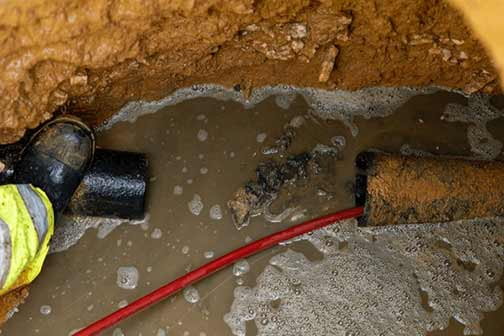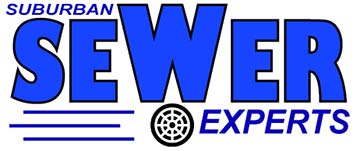
A blocked sewer line can bring your home to a total standstill by making it hard or impossible to use your plumbing fixtures and appliances, warns Peabody Residential Experts. If the blocked sewer line causes sewage to back up into your house, it can make your home practically unlivable and even damage your property.
However, sewer line blockages don’t just happen; they always have a cause, and most of the time, before the sewer line blocks, it will give you clear warning signs. Most sewer line problems happen because these warning signs are not heeded, and also because the home’s drainage system is abused.
How to avoid a blocked sewer line in your home
To stop sewer line clogs and blockages in your home, you need to know the following:
- The right way to handle your drainage system
- How to care for the sewer line
- The warning signs of a blocked sewer line
What not to do to your sewer line
- Keep FOG out of your drains: Fats, oils, and grease (FOG) will harm your sewer line if they enter the pipes. Although they are soft and runny inside your kitchen, in the cool air of the sewer line, FOG becomes a hard, sticky mass that blocks pipe channels.
- Don’t use your drains as a trash can: Do not toss food scraps in your kitchen sink, even if you have a garbage disposal. Also, keep the following types of food waste out of your drainage pipes: coffee grounds, eggshells, starchy foods (such as mashed potatoes, rice, and pasta), fibrous vegetables (like celery or corn husk), bones, etc.
- Keep non-flushable things out of your toilet: Even if they are labeled as flushable, keep paper wipes/towels, diapers, cat litter, feminine hygiene products, latex condoms, etc, out of your toilet. Ideally, only human waste water and toilet paper should enter the toilet.
- Protect your sewer line from tree roots: Trees and shrubs with invasive roots are a danger to your sewer line. They can push the line out of place by growing over or under it. This will change the slope of the pipes and make them more likely to clog. Tree roots may also penetrate sewer pipes to access the water and nutrients inside them.
- Avoid chemical drain cleaners: Chemical drain cleaners will damage your sewer line. Most of them use intense heat as their active agent for clearing clogs. This heat can melt or weaken sewer pipes. Chemical drain cleaners are also very corrosive; persistent use of them will leave your pipes brittle, full of holes, and ultimately, clogged.
- Beware of heavy vehicles and construction activities: Parking heavy vehicles and equipment directly above the location of your sewer line can compress the soil and collapse the line. Construction activities and excavations around the location of the sewer line may also damage the pipes.
Caring for your sewer line
The following steps, done on a schedule, will stop sewer line blockages before they happen.
- Flush your drains: With your drains open, run all the faucets in your home at once. Let the water flow for several minutes. Doing this once a month helps to wash out the debris inside the sewer line. For added effect, fill up the bathtub and then release the water.
- Inspect your sewer line annually: To know the condition of your sewer line, have a professional plumber conduct a sewer camera inspection. This check helps you identify problems in the line, so you can stop them before they degenerate into a crisis.
- Clean your sewer line: Professional drain cleaning with hydro jetting or sewer rodding is the most effective way to remove all the accumulated debris inside your sewer line. These solutions allow you access to the line to directly dislodge any buildup inside the pipes.
Signs of a blocked sewer line
If your sewer line is blocked or about to suffer a blockage, you may see these signs in your home:
- Multiple clogged drains in your home. If more than one drain is clogged, your sewer line may be blocked.
- Chronic drain problems. If you unclog a blocked drain, only for the problem to return, your sewer line could be clogged.
- The smell of sewer gases inside your home. This means that a blocked section of the line is not allowing sewer gases to pass freely.
- Changing water levels in the toilet. If the water level inside the toilet bowl rises and falls erratically, there is a chance that your sewer line is clogged.
- Pest invasion of your home. A clogged or blocked sewer line may invite roaches, rats, and mosquitoes into your property.
- You may also find patches of soggy soil with excessively lush grass in your lawn if a blocked sewer line starts to leak.
What should you do if you think your sewer line is blocked? This is not a problem you can DIY. Keep in mind that the next step after a blocked sewer line is often a sewage backup inside your home. If you suspect that your sewer line is clogged, contact a sewer line expert at once.

